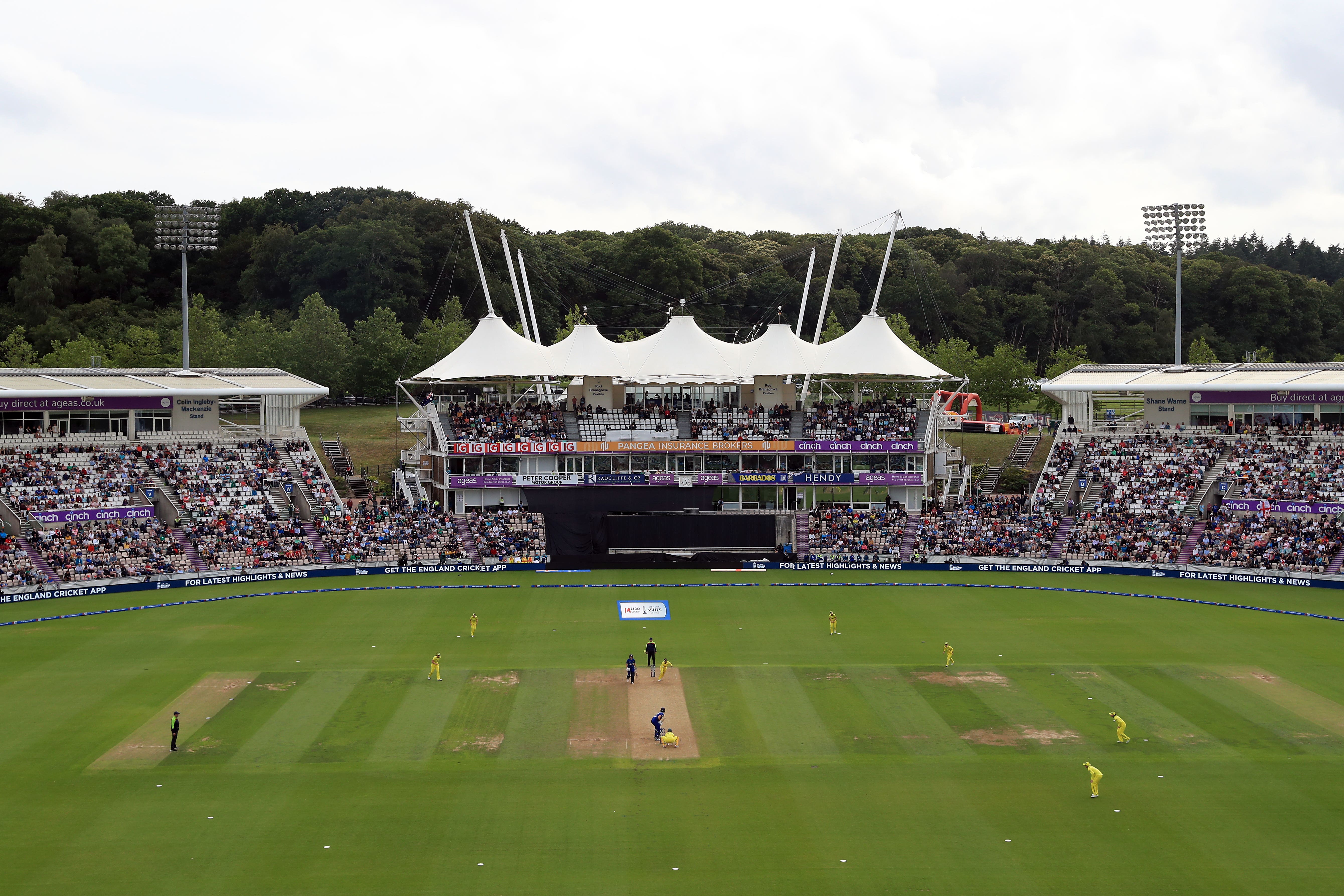Hampshire chief executive says IPL investment subject to ‘protecting legacy’
It has been reported that majority shareholder Rod Bransgrove is in talks to sell his stake to GMR Group, part owners of IPL franchise Delhi Capitals.

Your support helps us to tell the story
From reproductive rights to climate change to Big Tech, The Independent is on the ground when the story is developing. Whether it's investigating the financials of Elon Musk's pro-Trump PAC or producing our latest documentary, 'The A Word', which shines a light on the American women fighting for reproductive rights, we know how important it is to parse out the facts from the messaging.
At such a critical moment in US history, we need reporters on the ground. Your donation allows us to keep sending journalists to speak to both sides of the story.
The Independent is trusted by Americans across the entire political spectrum. And unlike many other quality news outlets, we choose not to lock Americans out of our reporting and analysis with paywalls. We believe quality journalism should be available to everyone, paid for by those who can afford it.
Your support makes all the difference.Hampshire chief executive David Mann stressed he and majority shareholder Rod Bransgrove will “protect the legacy we’ve built” amid speculation the club could be sold to an Indian Premier League group.
Bransgrove is widely credited for rescuing Hampshire from the brink of bankruptcy when he first joined in 2000 and oversaw a period of great success for the club as chair before standing down last year.
It was reported last week he was in talks to sell his stake to GMR Group, part owners of IPL franchise Delhi Capitals, and Hampshire have confirmed they are in “detailed negotiations” with new investors.
Mann would not be drawn on any specifics but, while he believes cricket must have more investment, any deal – especially with an Indian conglomerate – would not reshape the values of the club.
Speaking at the announcement of the club’s home ground being rebranded the Utilita Bowl, Mann told the PA news agency: “I don’t think anyone would argue private investment in Hampshire has been a bad thing.
“There wouldn’t be a Hampshire if there hadn’t been a private investor here so I think whatever we do with investment down the track, it’s about the quality of the person that you engage with.
“The game needs more investment and is crying out for it to underpin the viability going forward. But we’re the custodians for the time being and we’ve got the interests of that at heart more than anything else.
“Rod has been for 20-odd years, I’ve been here for 15 years; we’re very, very keen to protect the legacy we’ve built so we wouldn’t do anything that would jeopardise that.”
The game needs more investment and is crying out for it to underpin the viability going forward
Bransgrove led the club’s move to a ground on the outskirts of Southampton, which is now a major international venue, regularly hosts England matches and will stage in 2027 its first Ashes contest.
Following the end of a longstanding union with Ageas, Hampshire have found a new naming rights partner, agreeing an eight-year partnership with energy supplier Utilita believed to be worth seven figures.
As well as pushing charitable ventures to make a bigger impact on the local community, Mann admitted the “real clincher” was the sustainability angle in which Hampshire will attempt to become the world’s greenest cricket ground.
The first step towards this ambition is the installation of 1,000 solar panels that could produce up to a quarter of the electricity used in the ground annually and save the club a six-figure sum each year.
Mann said: “This aspiration to be the greenest venue is something we’re able to back up with real tangible assets that are going to deliver measurable returns. It’s an exciting time.
“I’m not going to say we’ll be net zero by 2040, I want us to say something that we can back up with hard data and reducing your actual energy use by a quarter is hard data.
“Over time, if we can make other improvements to make another big hole in that, that’s how we’ll be able to say that we’re unique and doing stuff that nobody else is doing.
“We’ve got a massive footprint here as well – there’s 200 acres on the Utilita Bowl site so we can do things with tree planting, how we collect and use water and a whole range of other things.”